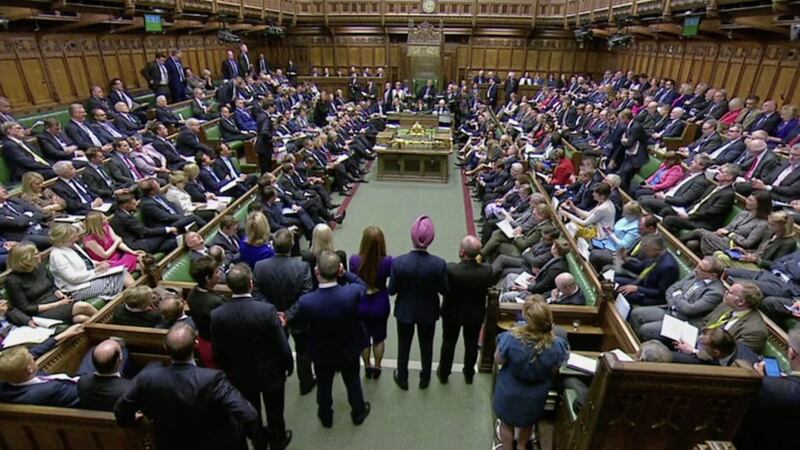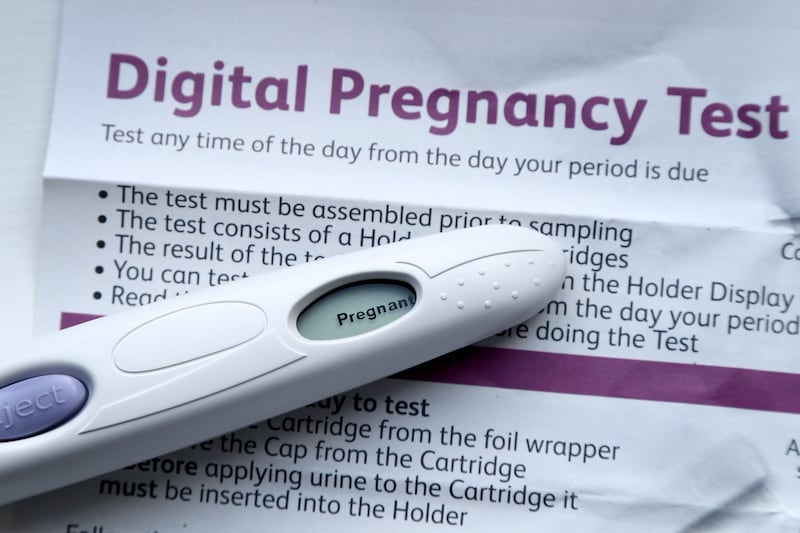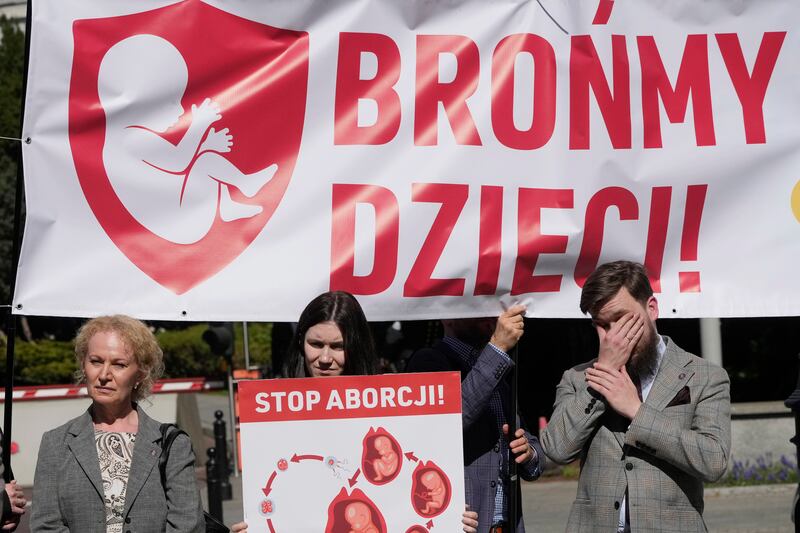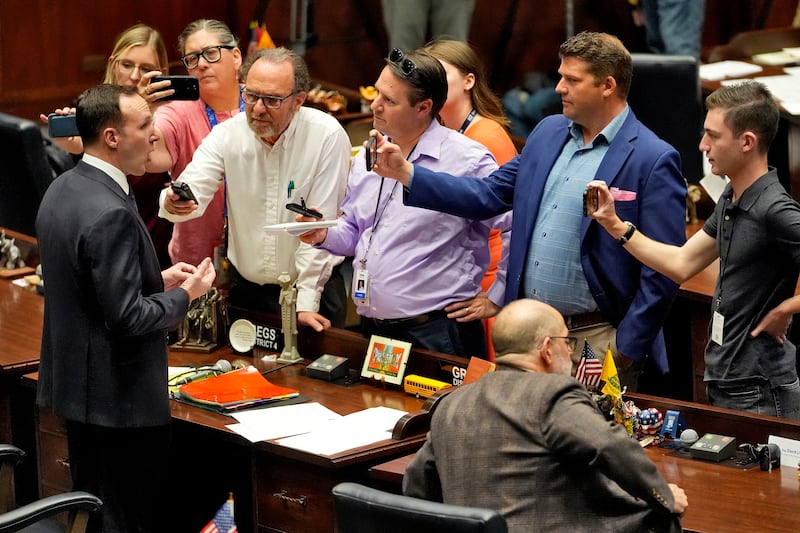IN the space of just two weeks, parliamentarians have this month fast-tracked legislation concerning abortion and same-sex marriage in Northern Ireland through both houses at Westminster.
Right at the start it is important to say that both of these issues cut right to the heart of our identity, relationships and beliefs - things we all care about deeply.
We understand that for many people these are days of celebration. In their view of the world, these changes represent a huge leap forward in the long fight for equality and justice.
People will be more free to do what they want to do as Northern Ireland leaves the dark ages and embraces the new progressive enlightenment.
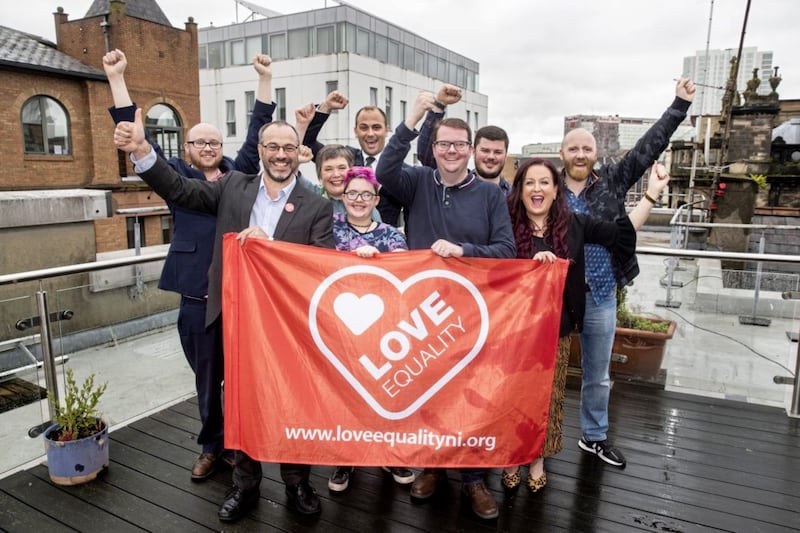
There is no doubt that Northern Ireland is a place apart within these islands.
A strange cousin, related to Great Britain and the Republic of Ireland but somehow feeling a little estranged from both; a place where religion and politics still run deep, untangling slowly from a dark and bloody past; a tale of two countries with worldwide coverage of the death of Lyra McKee and the Open Championship just months apart; a place of great contrast, pain and promise, hostility and hospitality. A place on the cusp.
So like most people, we are deeply frustrated by the lack of good and strategic local governance here.
The Northern Ireland Assembly has not met since January 2017 and a spirit of abdication and blame-gaming has filled the vacuum.
However, we are far from celebrating what has happened in the past couple of weeks at Westminster.
We have two primary concerns.
The first is the around the parliamentary processes which were used to pass the legislation. The second is about the substance of the changes.
A precedent has been set when it comes to devolution within the UK which is potentially far-reaching.
Abortion and marriage are two of the most sensitive moral, social and political devolved issues.
For MPs at Westminster to effectively circumvent devolution on these issues, with the help of some within other devolved nationalist parties, should be concerning for people living here, in Wales and in Scotland.
Attaching amendments on specific devolved social policy to a bill about the formation of an Stormont executive is not how these sensitive issues should be dealt with.
This legislation was then fast-tracked through both houses, leaving little or no time for proper scrutiny.
We need to be very clear that this legislation is not limited to what are termed the hard cases involving babies which likely won't survive until birth or pregnancies caused by rape or sexual crime
The dubious scope and speed of the bill combine to give more than the impression that many politicians at Westminster care nothing for the impact of this decision on devolution in this politically sensitive moment or in the long-term.
On the issue of same-sex marriage, we understand the desire for equality and justice.
These are good things and many in the LGBT community live in a story where they feel they have been marginalised and left out for years.
At times they have not been treated well and the same scriptures that teach us about God's purposes in sexual relationships also teach us about our responsibility as neighbours and friends.
We care deeply about justice and equality. We don't want to see anyone bullied, unfairly discriminated against or their human dignity diminished because of their sexual orientation.
Where we have failed to be good neighbours, we repent.
However, this does not mean that marriage, sexuality and equality should be conflated together into same-sex marriage as a concept.
Marriage does not threaten or diminish the love between other people. The unique male and female nature of marriage is part of its essence and beauty.
It is not an injustice or inequality which needs to be corrected but something apart. Obviously as Christians we also believe marriage is a living symbol of Christ's relationship with the Church.
But it is a common grace, given to humanity and lying beyond the ownership of the state and the Church.
So our interest in marriage is not just private or personal, it does not stop at the doors of the church or once the ceremony is over.
The state has a relatively recent and largely administrative role in marriage. There are religious and civil wedding ceremonies as two different entry points in; but once a couple are married, their marriage is not differentiated by the state as religious or civil.
The state is at liberty to address any legal injustices, real or perceived, through amendments to civil partnership legislation which they invented.
The dubious scope and speed of the bill combine to give more than the impression that many politicians at Westminster care nothing for the impact of this decision on devolution in this politically sensitive moment or in the long-term
However, marriage is not ours to fashion so radically; rather, it fashions us.
Beyond the sound bites and hashtags which are often used to shut down any debate or dissent, there has been very little public debate here or anywhere else about the long-term effects on communities, children and society of redefining marriage in such a profound way.
If marriage is just a contract between two consenting adults then no big deal; but if marriage has a purpose and place beyond those two people in biologically binding together parents and children across generations and cultures throughout history, then as a policy issue, we should be cautious about hasty changes.
This latest debate has been certainly been hasty, in the context of thousands of years of marriage as a social norm between men and women across time and place.
If the law changes then protections for Churches and faith-based charities will be of vital importance.
However, if the public narrative continues that this is indeed an issue of justice and equality, the robustness of any exemptions in the long-term could be questionable.
The fact the Ashers bakery case got to the Supreme Court highlights the need for serious protections around freedom of expression in workplaces, commerce and the public square more widely where social pressure to affirm and celebrate any change is growing.
When it comes to abortion, again we are dealing with an incredibly sensitive issue.
We need to be very clear, however, that this legislation is not limited to what are termed the hard cases involving babies which likely won't survive until birth or pregnancies caused by rape or sexual crime.
This legislation would at a sweep remove practically every legal protection for women and babies when it comes up to abortion up to 28 weeks.
Every woman would lose the legal protection the law currently affords the baby in her womb until 28 weeks and every child would lose this protection too, in the name of choice for the minority of women who would choose abortion.
How any protections would then be brought back in again remains unclear.
Unfortunately, the story of progress written for women is that they will never be free and equal until they have the ability to end the lives of their unwanted pre-born children.
Those who oppose this idea obviously don't trust women to make their own decisions about their own bodies.
This is why the abortion campaign will not cease until every woman has the ability to abort any baby in any pregnancy, at any stage for any reason.
Again, anything less is an unacceptable injustice.
Despite the fact that there is no blanket human right to an abortion, this ideology has even managed to take a foothold in the language and fringes of human rights quangos and committees.
Will the Human Rights Commission and human rights groups oppose legislation or a lack of regulation which could lead to babies being aborted just because they are girls or being discriminated against on the grounds of disability?
It seems to be 'human rights compliant' that a physically and mentally healthy woman can abort a physically healthy baby at 39 weeks for no reason.
It is shameful and sad when human rights are being used to end unwanted human life, and the complete opposite of why and how they came to be formed.
To quote Alban Maginness, a former SDLP assembly member, "abortion is not human and it is not right".
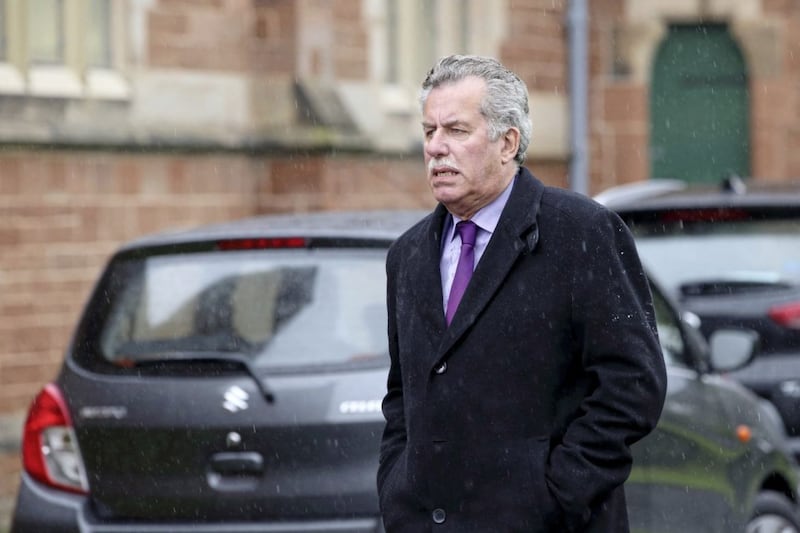
Abortion was brought into Britain in 1967 by then-MP David Steel to tackle the issue of backstreet abortions.
But abortion has moved from the back street to the high street and provision is now a multi-million pound global industry.
For every four children born in Britain, another is aborted; 38 per cent of all abortions last year were for women who had already had at least one abortion.
The extent of the current situation is such that earlier this month David - now Lord - Steel said, "There are too many [abortions] and it was wrong to use abortion as contraception."
Those who would attack pro-life advocates for saying the same words seem strangely silent...
On this issue our society has confused legal protections and boundaries with a woman being on the receiving end of a moral judgment.
A law which stops people doing what they want to do is seen as judgmental and immoral, even though that is often a primary function of law for the protection of others.
We want to see laws and support services in Northern Ireland which protect women and unborn children together as far as possible.
Rather than a tug of war, where women only win when unborn children lose protections we want both to thrive as far as humanly possible.
Whatever the outcome of this legislation this is what we will continue to work towards.
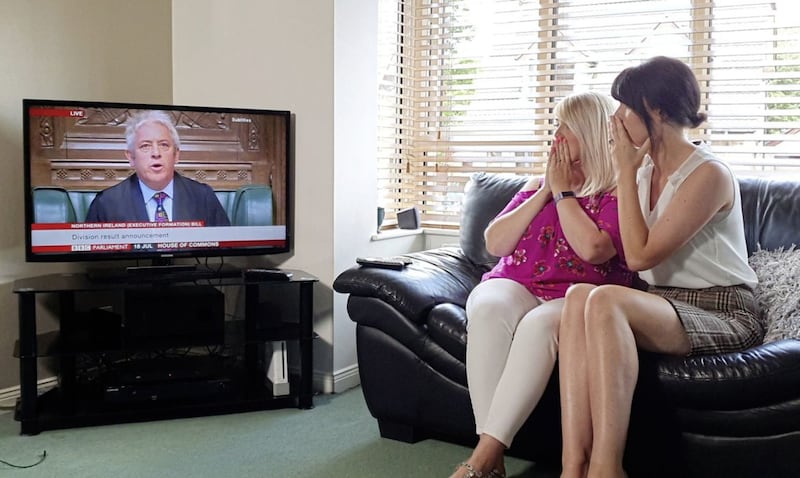
I started by outlining the vision of many of those who are celebrating today.
I want to acknowledge that, while I profoundly disagree, for many these changes are genuinely seen to be in the best interests of our society in making it a more equal and compassionate place to live.
So are we on the wrong side of history?
Well, it depends on how long your view of history is and what you believe is in the process of coming to be.
As Christians we take a different view of history. We look forward to the fulfilment to all of scripture and the return of Christ as described in Revelation 21: judgment and justice, life and love eternal.
God will dwell with his people in the renewed heavens and earth where there will be no more abortion and no more sin, no more sickness, death or tears.
Until then, as citizens of the kingdom of heaven on earth, we live as a salty foretaste.
We invite those who don't know Him yet to become part of the unfolding good news story of God at work in his world - one in which humanity finds their true identity and purpose between the breath of God and the dust of the earth.
We proclaim the message of Jesus who calls us out of our autonomy and into new-life-sustaining community with Him, His Church, our neighbours and even our enemies.
Distinctive in our approach to identity, relationships and beliefs we do life differently, beautifully in the mess of the here and now - confident in the Lord, his grace and his goodness, come what may.
Same-sex marriage and abortion will be introduced in Northern Ireland after October 21 unless a new Northern Ireland executive is formed.
Same-sex marriage would not actually come into force until January 13 2020.
There will be a consultation process, lasting between eight and 12 weeks, on abortion. This won't be on whether the law will change but on how the changes will be implemented. You can add your voice to any consultations on these important issues.
- David Smyth is public policy officer at the Evangelical Alliance in Northern Ireland

